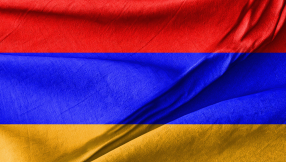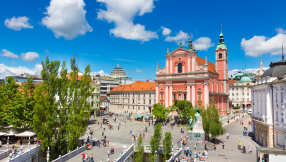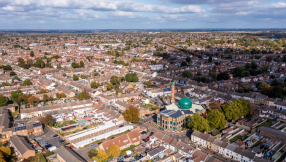Syria's Assad to seal detente with Europe
The diplomatic breakthrough - the first time Israeli and Syrian leaders will have been in the same room - enables Assad to emerge from isolation in the West three years after the assassination of former Lebanese Prime Minister Rafik al-Hariri, which many believe was orchestrated from Damascus.
Some 43 heads of state and government will attend a summit intended to revitalise cooperation between the European Union and Mediterranean countries, which may be richer in symbolism than substance.
The new organisation aims to pursue practical projects with EU and private sector funding such as cleaning up the Mediterranean Sea, using North Africa's plentiful sunshine to generate solar power, and building road and sea highways.
"What we need is a new political impulse, a new revitalisation, a new dynamism," EU External Relations Commissioner Benita Ferrero-Waldner told Reuters.
France and Egypt will co-chair the new body for two years, but details such as the location and powers of its secretariat remain to be resolved, and the Middle East conflicts that bedevilled past EU-Mediterranean cooperation still loom large.
Yet French President Nicolas Sarkozy was able to boast that all the leaders of the southern Mediterranean region except Libyan leader Muammar Gaddafi would be present, whereas only one attended a 2005 Euro-Mediterranean summit in Barcelona.
"PACIFIED ZONE"
Sarkozy claimed a first success on Saturday when he hosted talks between Assad and Lebanese President Michel Suleiman, who agreed to normalise relations between Damascus and Beirut for the first time since independence in 1943.
"We can say that Lebanon has moved from being a zone of turbulence, a war zone, to a more pacified zone where the Lebanese, and only the Lebanese, have the right to determine their own future," said Assad, long accused by France, the former colonial power, of meddling in Lebanese politics.
The Syrian leader accepted a deal mediated by the emir of Qatar in May to pull Lebanon back from the brink of civil war, leading to the election of Suleiman and the appointment of a government of national unity on Friday.
Assad has also begun indirect peace talks with Israel via Turkish mediation, but he said he did not expect direct negotiations for the next six months until U.S. President George W. Bush is out of office because the current administration was not interested in Middle East peace.
Sarkozy also asked Assad to use his good relations with Iran to help resolve the international stand-off over Tehran's nuclear ambitions.
Two countries that were very sceptical of Sarkozy's original Mediterranean Union initiative, Germany and Turkey, gave the reshaped version their full support on Saturday.
Turkish Foreign Minister Ali Babacan said Ankara would play a constructive role and accepted French assurances that this was not intended as an alternative to Turkey's EU membership bid, which Sarkozy has long opposed.
German Chancellor Angela Merkel, who forced Sarkozy to include all EU members in the new look partnership, said in her weekly podcast that the Middle East region and North Africa were of strategic importance to the whole of the EU.
"In the future we want to discuss the problems with the nations around the Mediterranean from a position of equals," she said.













